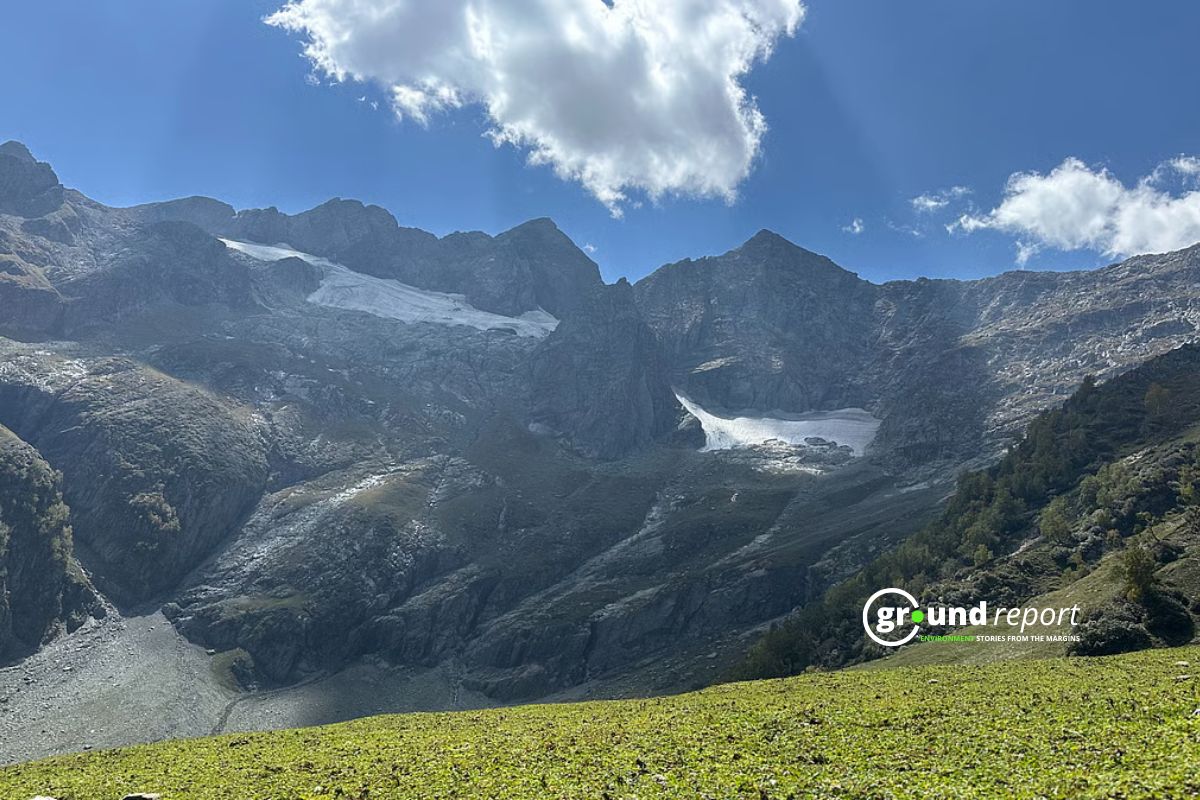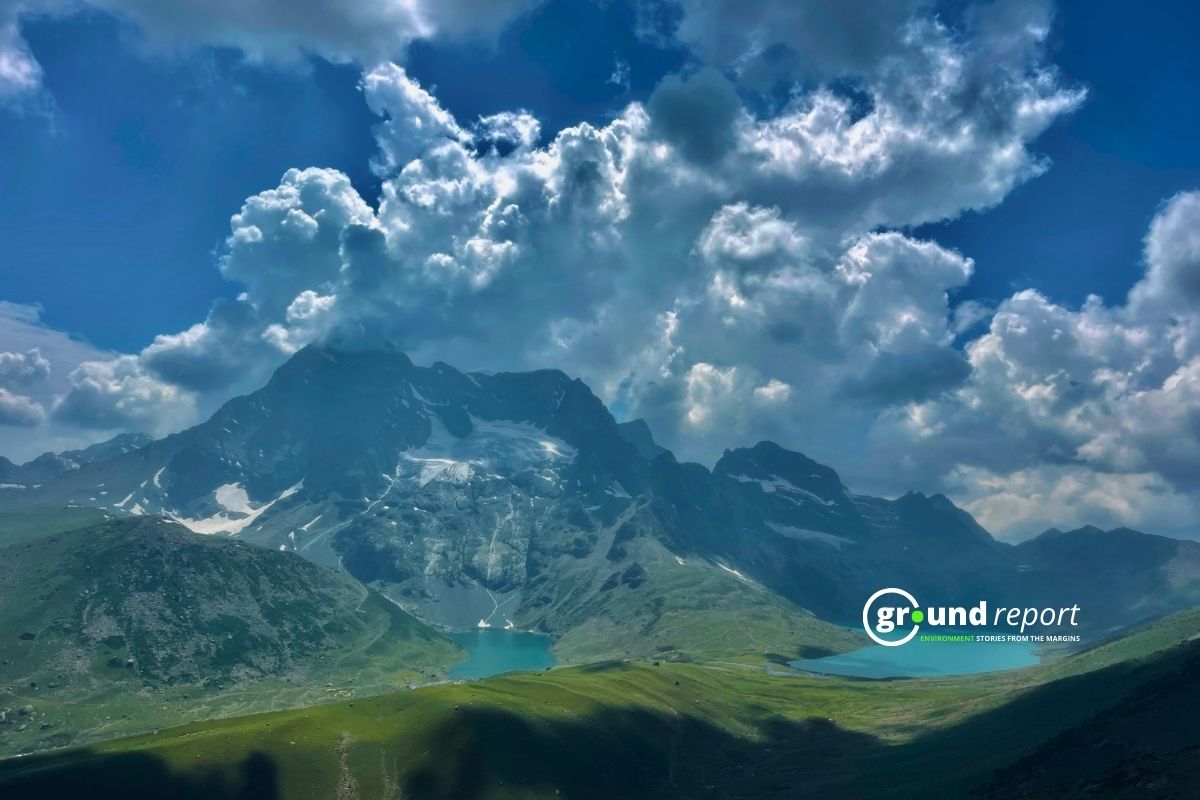Data shared by a leading climate scientist indicates that the Earth’s temperature briefly surpassed a critical threshold, which scientists have long warned could have disastrous and irreversible effects on the planet and its ecosystems.
According to the European Centre for Medium-Range Weather Forecasts (ECMWF), the world’s average surface temperature exceeded 2°C above pre-industrial levels for the first time on November 17, 2023. The temperatures were 2.06°C warmer than the average for 1850-1900. This was also the warmest November 17 on record
Last Friday marked the first time the global average temperature was more than 2 degrees Celsius higher than pre-industrial levels, according to preliminary data shared by Samantha Burgess, Deputy Director of the Europe-based Copernicus Climate Change Service.
Only temporarily did the threshold exceed and it does not imply that the world permanently experiences warming above 2 degrees. However, it indicates that the planet is steadily heating up, edging towards a long-term scenario where it will be challenging, and in some cases impossible, to reverse the impacts of the climate crisis.
In the 2015 Paris agreement, world leaders set a goal to keep warming “well-below” 2°C above preindustrial levels. The Intergovernmental Panel on Climate Change (IPCC) contends that if warming breaches that point, it will increase several climate risks: a 2°C rise in temperature compared to 1.5°C will raise sea levels by an additional 0.1 meters by 2100, obliterate 99% of coral reefs instead of 70% to 90%, and expose several hundred million more people to poverty and climate-related hazards by 2050.
Copernicus Climate Change Service deputy director Samantha Burgess first noted Friday’s 2°C breach on social media Sunday. She stated that the day was also 1.17°C above the 1991-2020 average, making it the warmest November 17 on record.
Recent heat spike not trend
Scientists have highlights that the recent global heating exceeding the 2°C threshold does not indicate a long-term trend. Michael Mann, a climate scientist from the University of Pennsylvania, clarified that the 1.5°C and 2°C warming thresholds are based on trends, not individual periods. He warned against misleading interpretations of these figures.
Richard Allan, a climate science professor at the University of Reading, echoed this sentiment, stating that it’s normal for single days to surpass 2°C above preindustrial levels before the actual 2°C target is breached over many years. However, he also cautioned that these readings serve as a “canary in the coalmine,” highlighting the urgent need to address greenhouse gas emissions.
The past year has seen a series of alarming climate indicators. From November 2022 to October 2023, we experienced the 12 hottest months on record. The Northern Hemisphere had its hottest summer ever, July was the hottest month, and 2023 is likely to be the hottest year in the last 125,000 years. These record-breaking temperatures have led to devastating heatwaves, wildfires, and floods worldwide.
Climate Defiance, a climate advocacy group, warned that the planet’s vital signs are clear and humanity is on life support. They stressed that the recent 2°C breach is not a climax but a small taste of what is to come, especially with the El Niño cycle just beginning.
Ed Hawkins, a scientist with the Intergovernmental Panel on Climate Change (IPCC), noted that while it’s just one day above 2°C, it underscores that we are nearing the limits set by the Paris Agreement. He highlights that we already have many solutions to reduce emissions and halt the rise in global temperatures, but we need to choose to use them.
Warming limit ‘getting closer’
A series of records this year includes the first day that exceeded the 2C target: October set the record for being the warmest ever globally, as did every month since June, according to Copernicus. Copernicus stated with “near certainty” that 2023 will surpass the hottest year record set in 2016.
The world has seen a series of climate records this year: every month from June to October was the hottest ever globally, according to Copernicus, which predicted that 2023 would most likely break the record for the hottest year set in 2016.
The first day to go beyond the 2C target is part of this trend. Scientists also say that other sources of climate data—such as tree rings or ice cores—suggest that this year’s temperatures could be the highest in human history, possibly the warmest in more than 100,000 years.
Copernicus said earlier this month that October was about 1.7C warmer than the average for that month before the industrial era. It also said that the global average temperatures since January were the highest in records going back to 1940, reaching 1.43C above the pre-industrial average of 1850-1900.
This does not mean that the Paris Agreement limit has been crossed, but UNEP warned that the records “signal that we are getting closer”.
The world leaders will have to face a critical assessment of the Paris Agreement and its progress at the COP28 conference in the United Arab Emirates from November 30 to December 12, after major scientific studies have shown that the world is far off track.
Keep Reading
Part 1: Cloudburst in Ganderbal’s Padabal village & unfulfilled promises
India braces for intense 2024 monsoon amid recent deadly weather trends
Support us to keep independent environmental journalism alive in India.
Follow Ground Report on X, Instagram and Facebook for environmental and underreported stories from the margins. Give us feedback on our email id greport2018@gmail.com.
Don’t forget to Subscribe to our weekly newsletter, Join our community on WhatsApp, and Follow our YouTube Channel for video stories.









